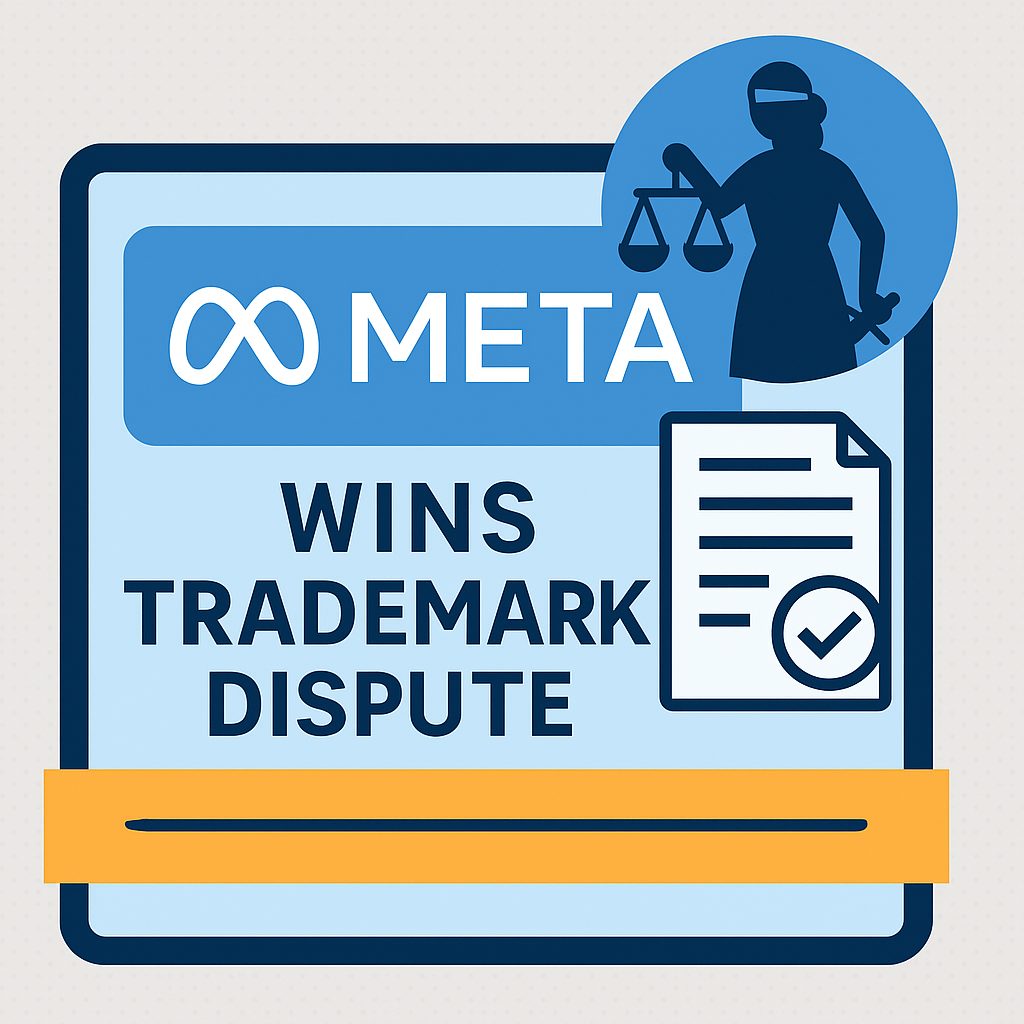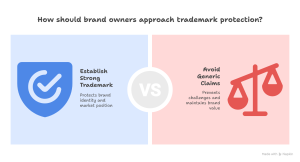Meta Platforms scored a legal win this week. A California judge dismissed a challenge claiming that the name “Meta” was generic, reaffirming its trademark strength. The result reminds brand owners—and underdogs—that even bold, simple names can stand firm with the right foundation.
Case Summary: Meta vs. Metabyte
- A tech-staffing company named Metabyte accused Meta of infringing its mark due to name similarity. The court found no evidence of confusion or harm and upheld Meta’s registration.
- The judge called it “not a close call,” citing lack of proof that consumers or job seekers linked the two brands. Small-brand founder Metabyte is considering an appeal.
- See the court order dismissing the lawsuit here.
Why It Matters to Your Brand
- Even short, familiar names can survive a trademark challenge if you’ve built strong recognition.
- Proof of consumer confusion matters more than similarity—counter your critics with data, not defensiveness.
- Registration gives brands powerful legal standing—even global giants and small startups benefit alike.
Key Takeaways for Trademark Strategy
- Collect brand recognition metrics: social engagement, search volume, and unique brand signals help prove distinctiveness.
- Document how your name stands apart—logo, brand voice, presentation style.
- Register early, even for simple or single-word names—many runners delay, thinking “it’s too generic,” only to find it’s not.
- Keep an eye on others trying to ride on your name. Proactive monitoring beats reactive defense.
Quick‑Take Q&A
Why was the case thrown out so decisively?
Because Metabyte failed to show that anyone—customers or employees—actually confused its brand with Meta. Courts need real-world confusion evidence, not assumptions.
Does this mean small businesses can safely choose common names?
Not always. Names need context. “Meta” carries distinct meaning already. Check for similar businesses and themes before filing.
What’s more important: the word itself or how you use it?
How you use it. Names gain protection from brand behavior, marketing consistency, and consumer recognition—not uniqueness in the dictionary.
Bottom Line
Meta’s ruling sends a powerful message: even seemingly “basic” names can earn trademark strength if they’re used smartly. Build your name with intention—document your distinctiveness, register early, and monitor your space.
Nathan Moore is a trademark attorney located in Nashville. Moore Law PC helps individuals and businesses successfully apply for and register trademarks nationwide.




